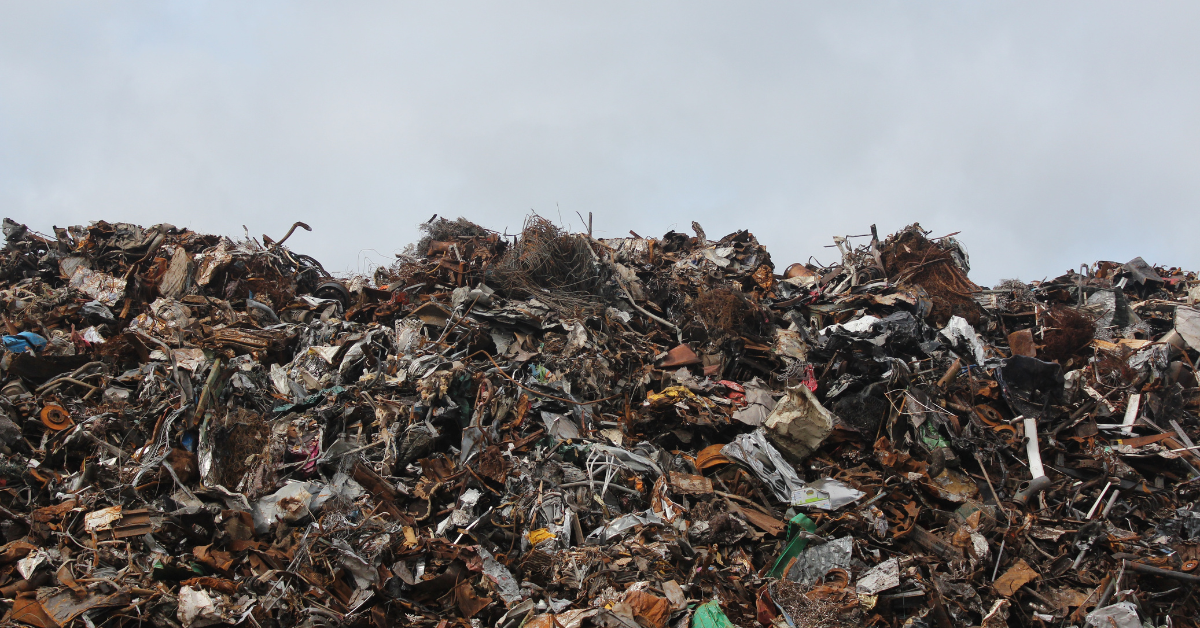
Environmental activism is at its peak in the MENA region and becoming increasingly dynamic. With a recent uptick in environmental campaigns, such as land use protests in Egypt, waste treatment in Lebanon, and water mismanagement in Basra – Iraq, an increasing number of non-profits and startups are stepping up their involvement in environmental causes, particularly in waste management.
In 2016, the MENA produced 129 million tons of waste, a fraction of the 2 billion tonnes that the world produces every year, a number that is expected to double in 2050 according to the World Bank. How much does the world recycle of that? Only nine percent.
While some MENA countries are finalizing waste management strategies with long-term environmental impact, others lean on the private sector for innovative solutions and impactful initiatives.
This is why we will witness the rise of many trends in waste management, starting with recyclable packaging and sustainable grocery shopping, and computer technology that will generate solutions to reduce, sort, and compost waste, all in a building effort to develop a thriving circular economy.
Positive Impact Of Sorting At Source
Waste management is a multi-step procedure dealing with solid and liquid waste. “It is trying to reduce the usage of landfills, lowering the quantity of waste, and organizing how the waste is being disposed of” explained Tereza Farah, Operations Manager / Project Director at Lebanon Waste Management (LWM).
Many aspects of waste management include collecting and transporting the waste, disposing of it in an environmentally friendly manner, and recycling it.
“Because of our current environmental conditions, waste management is essential for all households and companies to implement. Yet, it is still poorly implemented in Lebanon primarily due to the lack of awareness and the low number of facilities that sort the recyclables” Farah mentions.
Many strategies can be used for waste management; LWM adopts a common approach in Lebanon which is sorting at source, which automatically organizes how the waste is being sent to landfills. While picking up the garbage from households, supermarkets, and some municipalities remains the main challenge for LWM, the team is working on several initiatives; one is a shop where people can stop by and sell their recyclables.
Waste management maintains a circular economy that decreases importing of raw materials and helps export some recyclables to foreign countries. It creates job opportunities, decreases the use of landfills, and reduces the carbon emissions factories release. LWM is currently exporting waste to Turkey.
Lebanon’s Waste Crisis
Although Lebanon has been experiencing a waste crisis for some time, the public only became aware of it in 2015 due to increasing demonstrations against the growing accumulation of garbage throughout the country, particularly in Beirut.
Several solutions were proposed to dispose of the waste scattered throughout Lebanon, like temporarily reopening closed landfills, transferring the trash from Beirut to other regions like Sidon and the Bekaa, transporting waste outside the country, thermal disintegration and establishing sorting laboratories.
Yet, the public rejected all suggested solutions at the final stage due to the lack of experience and knowledge, as Paul Abi Rached, founder and president of T.E.R.R.E. Liban, says.
At the same time, many municipalities have been implementing a sustainable solution for waste management through recycling, and other methods have shown significant success, like Bechmizzine – Koura, Brih, Chouf, and many more.
Regarding the regulations still needed in Lebanon, Abi Rached mentioned that there are currently three laws for waste management, sorting, and protecting the environment that can be sufficient to start working on eco-friendly procedures.
Environmental Initiatives with Social Impact
Sorting is primarily common in Beirut, but it is expanding gradually into other large cities and villages.
Omar Itani started FabricAID in 2017 with two colleagues. The team collects clothes from schools, universities, municipalities, and associations; then sorts them into more than 70 categories according to sex, age, and gender.
Itani explained that FabricAid started by cleaning and reselling clothing at a low cost for marginalized communities, recognizing that more than half of Lebanon’s population is fell below the poverty line following the economic crisis in 2019.
FabricAid has managed to develop a socially and environmentally conscious value chain for the apparel industry by optimizing the collection, sorting, upcycling, and resale of second-hand clothes through a series of socially conscious and sustainable brands, collecting more than 400,000 items since it started. FabricAid is working to expand its business model and social and environmental impact to the rest of the MENA region.
The startup proves the ingenuity of the Lebanese youth and their capability to help build a better country. Itani explained that recycling reduces the trade balance deficit, creates a sustainable economy, and provides job opportunities.
Innovation & Technology in Waste Management
Cubex is a system for treating wastewater and solid waste at home. It lets people use decentralized treatment systems to deal with their organic waste. Marc Aoun co-founded the Lebanese startup in 2018, specializing in resource-oriented bio-waste management.
Rita Jahjah, the Lead Engineer at Cubex SAL, mentioned to Berytech: “Our mission is to prevent septic sludge from ending up in waterways through reducing its accumulation and recovering it in a solid-state to feed into a composting value chain.”
Cubex aims to develop solutions aligned with the local economy and adapted to the local context. By building on the existing value chain and infrastructure, the startup reduces user behavioral change and infrastructural requirements and ensures long-term sustainability.
Cubex has been working closely with refugee camps during the past years. The team is looking to make the needed tests onsite in August 2022 through Decantra, a mobile dewatering vehicle that collects sewage from septic systems in rural areas. It also allows onsite thickening of sludge and return of excess water following primary treatment.
Decantra can be implemented in different sites, not just refugee camps; Cubex has recently started working on a site in Bekaa with UNICEF and will be expanding in other regions when requested.
BIOwayste is another startup that Reine Metlej and Yasmeen Jabali launched, to target organic waste-generating entities like restaurants, hotels and farms.
Metlej mentions that almost 50 percent of Lebanon’s waste is organic; that’s why BIOwayste developed a decentralized enclosed system that allows the on-site conversion of organic waste into biogas and biofertilizer through a simple and natural bio-degradation process.
The innovation is sized like a regular washing machine and can be easily installed with a straightforward operating process. BIOwayste installed their solution in Tripoli, Mansourieh, and Beirut, and the team is expanding to other regions based on the demand of the entities.
A Growing Market for Recyclables
Lebanon’s defunct waste facilities still fuel many recycling economies around the world. Copper and iron are still two of Lebanon’s primary exports in the scrap metal industry. In 2020, Lebanon exported $71.8M in Scrap Copper, making it the 42nd largest exporter of Scrap Copper in the world according to the Observatory of Economic Complexity.
For this reason, recycling can be a considerable solution. However, Lebanon’s waste policy debate focuses on corrupt practices and the health and environmental impacts of poor waste management in the country.
Such startup initiatives benefit individuals and companies; still, the government’s support and strategy are essential for national implementation, especially when Lebanon is living through an economic crisis. Sustainable solutions can save millions of dollars and build a better future for the youth.
This article is published under the Diverting Waste by Encouraging Reuse and Recycling (DAWERR), a five-year activity funded by the United States Agency for International Development (USAID) with the goal to establish sustainable and replicable integrated solid waste diversion and valorization solutions in rural areas. of Lebanon.









